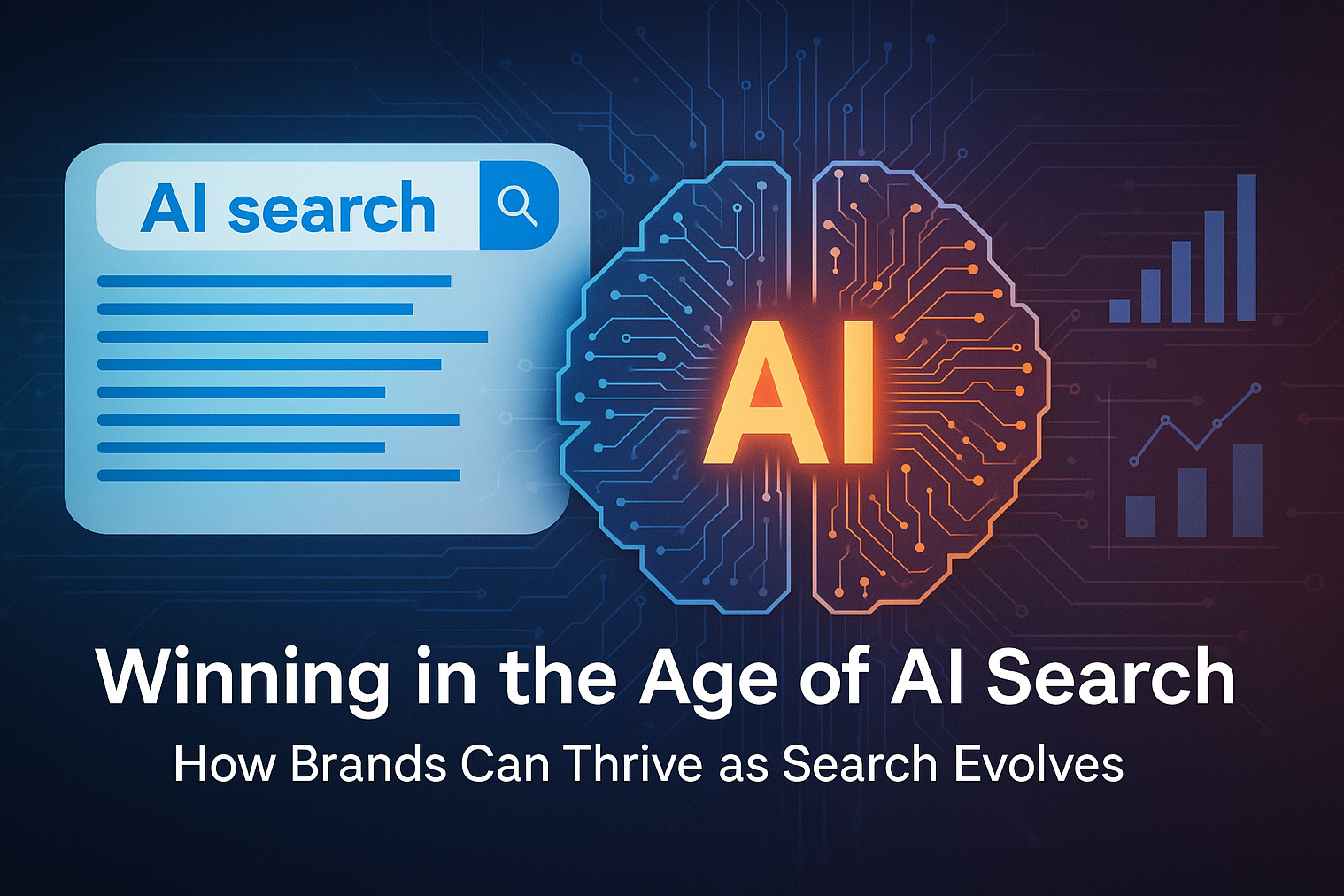Winning in the Age of AI Search: How Brands Can Thrive as Search Evolves
Search is changing faster than ever. With the rise of AI-powered features like Google’s AI Overviews and AI Mode, the familiar “10 blue links” are...
Read moreJoin our SEO Apprentice, Fiona Artwell, as she tells you how ChatGPT can benefit (and hinder) your SEO!
ChatGPT is the topic on everyone's minds. With the rise of AI in creative areas of the digital industry, marketers are wondering what developments such as ChatGPT mean for their own disciplines.
While my colleagues have been discussing ChatGPT in detail on our podcast, I've been considering how ChatGPT might influence the way we work within SEO. Will ChatGPT understand enough about organic performance to provide usable content, or should we be exercising extreme caution?
ChatGPT is a natural language processing tool driven by AI technology that can answer questions and assist you with tasks such as composing emails, essays, code, and much more. Usage is open to the public free of charge because ChatGPT is still in its research and feedback phase.
As ChatGPT is a powerful language generation tool this means that it can be used for a variety of natural language processing tasks, including search engine optimisation (SEO).
However, SEO is a complex and constantly evolving field, which requires a deep understanding of how search engines work and what factors they use in order to rank websites effectively. This means that, like any piece of technology, ChatGPT has its benefits and drawbacks when it comes to being used for search engine optimisation.
One of the main benefits of using ChatGPT for SEO is its ability to generate unique content that is optimised for search engines. This can help increase a website’s visibility and drive more traffic to it. This can be useful for creating content for websites and blogs, as well as for generating meta tags and meta descriptions. ChatGPT's other benefits include:
However, while ChatGPT has many benefits for SEO, there are also some drawbacks to consider.
One of the main drawbacks is the potential for low-quality or irrelevant content. ChatGPT is a machine learning technology, which means it is only as good as the data it is trained on (and the person asking the questions). If the training data is low-quality or not relevant to the task at hand, the generated content will likely also be low-quality or irrelevant.
While ChatGPT can be used to generate high-quality text, the technology does not have the ability to add the personal touch or creativity that a human writer can. This can be a drawback for businesses that want to connect with their audience on a personal level as the content written by ChatGPT may not have a personal feel to it.
ChatGPT is trained on a wide range of text data, but it may not always have the ability to understand the context of the content it is generating. This can lead to errors or inaccuracies in the text which would require editing and proofreading, to ensure that the information given is accurate, useful, and relevant to the context.
Another drawback is that ChatGPT is that it is not yet advanced enough to understand the intent behind a search query to generate a perfect response. It is still not fully capable of understanding the user's intent and this can result in irrelevant information, or content that falls out of favour with Google's Helpful Content Update - something we covered at the end of 2022.
ChatGPT is a powerful piece of AI technology for SEO, but it has its limitations. It is important to keep in mind these drawbacks and be aware of the potential for low-quality or irrelevant content.
However, despite its drawbacks, when used correctly and in conjunction with other SEO tools and expertise, ChatGPT is a powerful tool that can be used to strengthen organic performance, as it can help to streamline processes and identify keywords and topics. With its ability to generate content, optimise keywords, summarise long-form content, and automate the process, ChatGPT can be a valuable tool for SEO and content professionals looking to free up time spent on these tasks, and apply their skills to looking at broader strategies.
Businesses should weigh up the benefits and drawbacks of using ChatGPT for their SEO, consider how it fits into their overall content strategy, and use this software in conjunction with other SEO best practices to achieve the best possible results.
Plus, it’s free and easy to use for both beginners and advanced users, so there’s no reason not to give it a try!
Wondering how best to incorporate new technology into your digital marketing strategy? Get in touch with our experts.
Photo by Firmbee.com on Unsplash
More articles you might be interested in:

Search is changing faster than ever. With the rise of AI-powered features like Google’s AI Overviews and AI Mode, the familiar “10 blue links” are...
Read more


Arming yourself with the right tools to ensure a smooth site migration is important - find out how to protect your SEO during a migration today.
Read more
Google employees have recently announced that the upcoming Google Core Update is set to be released in the coming weeks. Understanding and addressing...
Read more
Language matters. Any marketer worth their salt knows this. But when discussing gender and sexual orientation, that importance is amplified tenfold.
Read more
When marketers think of thought leadership, there are names rather than ideas, that tend to spring to mind.
Read more.jpg)
With ChatGPT and generative AI becoming more prominent, Dr Dave Chaffey talks through how to review the marketing opportunities AI can bring to your...
Read more